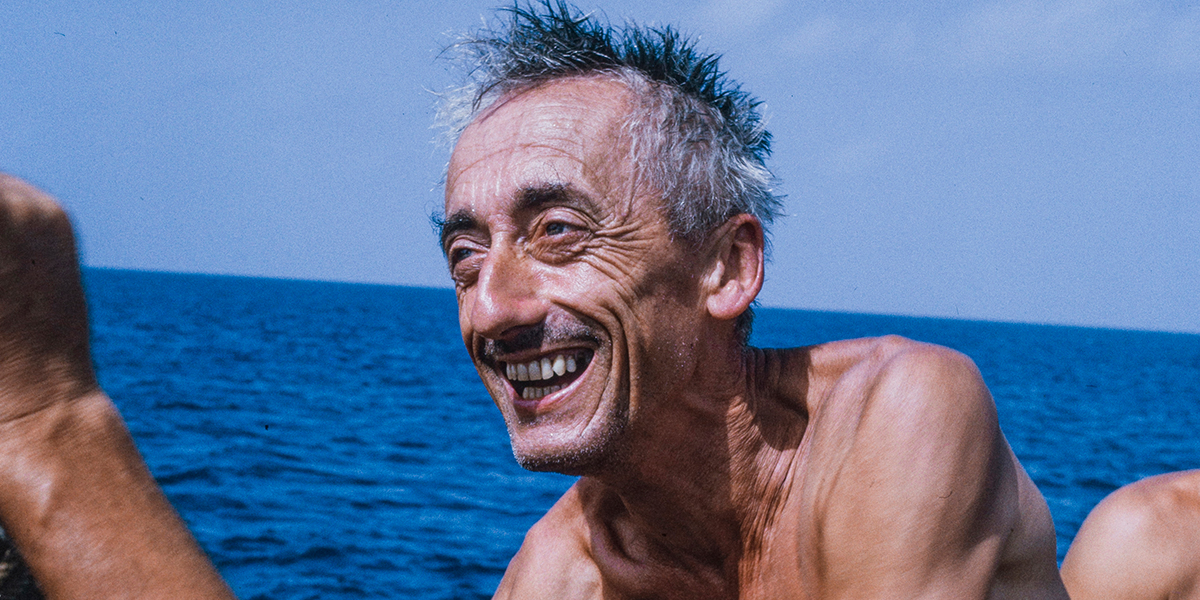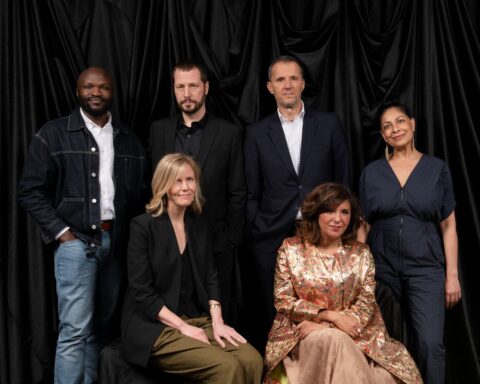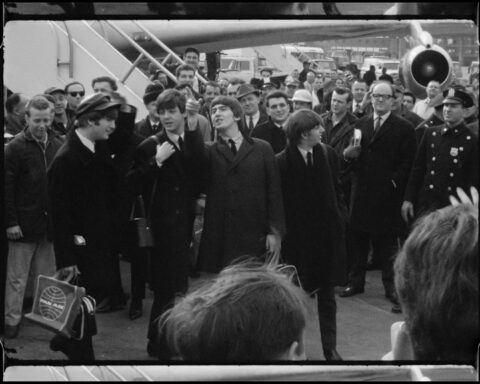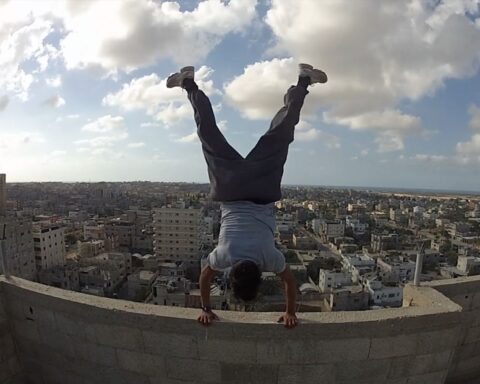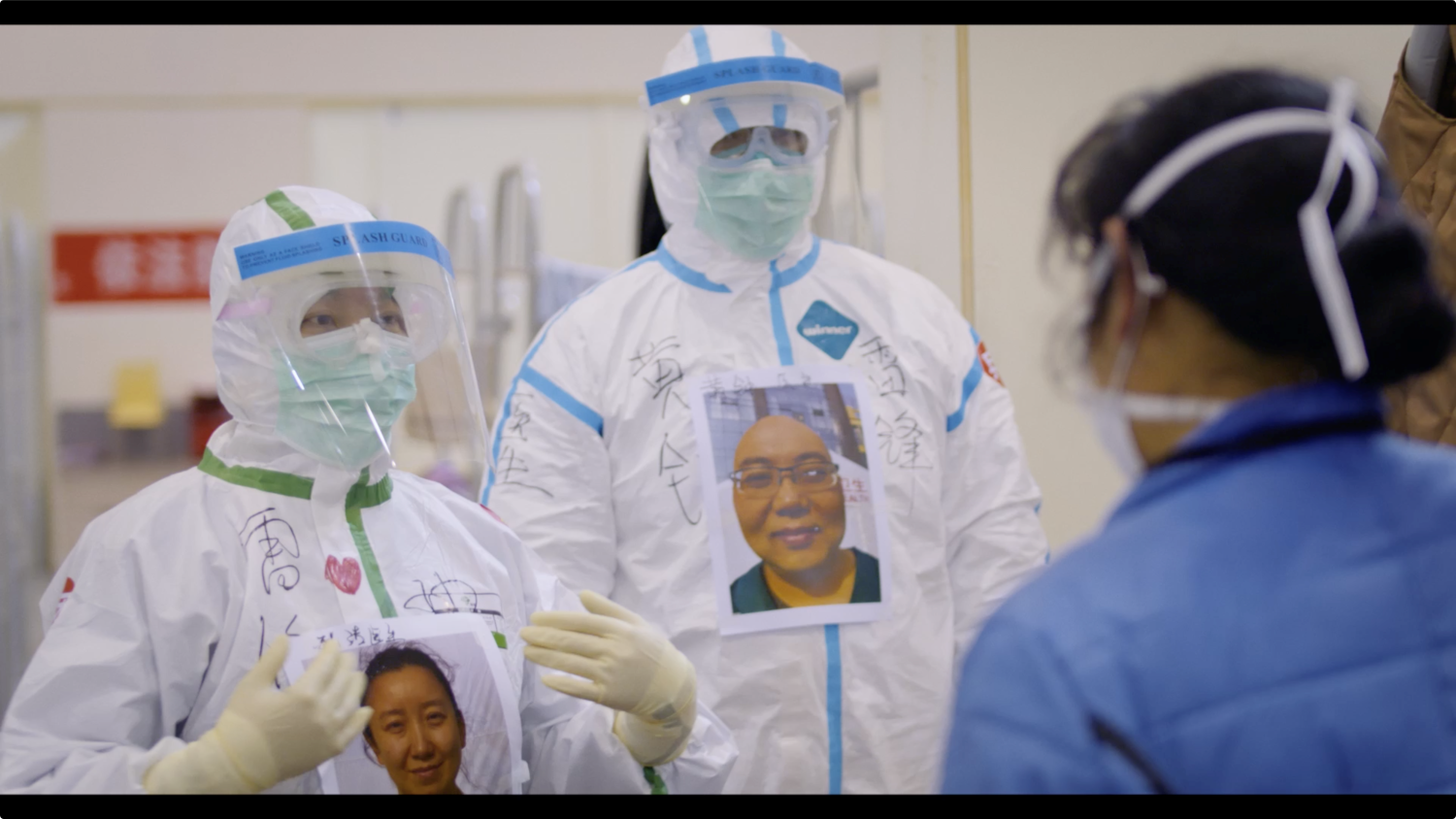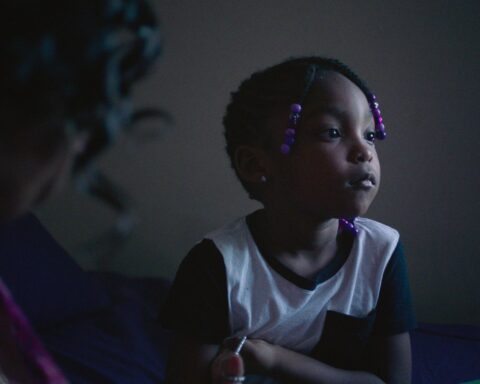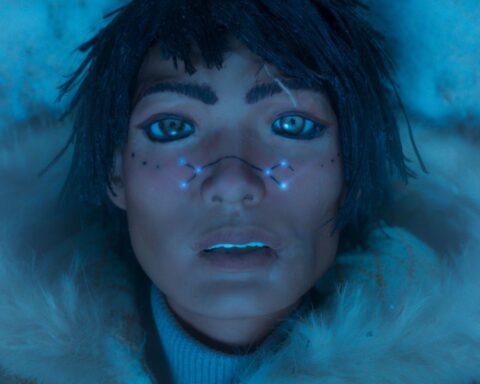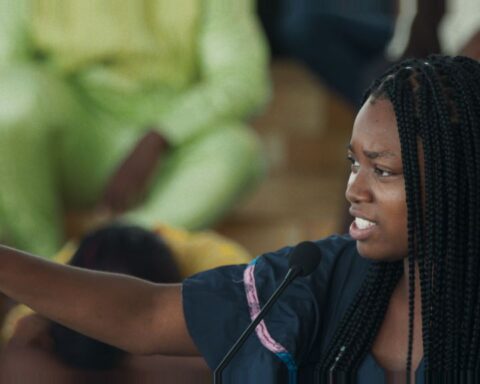For decades, Liz Garbus has been bringing the lives of complex, rich, and often morally complicated characters to the screen. From celebrated early works such as The Farm: Angola, USA and The Execution of Wanda Jean involving criminal justice, through to politically charged narratives like Ghosts of Abu Ghraib and All In: The Fight for Democracy, she’s brought a fearlessness and a keen eye to myriad stories. However, she asserts herself through her unflinching manner of handling characters who we think we know in ways that always surprise us.
From Bobby Fischer Against the World through to Love, Marilyn and the affable yet effective Nothing Left Unsaid: Gloria Vanderbilt & Anderson Cooper, she manages to elevate biographic documentary in extraordinary ways. Yet it’s her Oscar-nominated What Happened, Miss Simone? about the iconic chanteuse Nina Simone that is perhaps the most complex and challenging of her examinations of the famous. It delves into the life of a woman with demons as powerful as her talent was immense.
In Garbus’ latest doc, she looks at another iconic character, the explorer, filmmaker, environmentalist, inventor, and stereotypically lascivious French icon Jacques-Yves Cousteau. Her film Becoming Cousteau navigates the many aspects of the man, from his astonishing accomplishments in the worlds of undersea filmmaking and invention, through to his late-in-life crusades for environmental consciousness. Along the way, Garbus offers a wealth of sublime images captured by Cousteau and his crew, along with numerous contemporaneous interviews that provide a balanced and compelling portrait of the man’s legacy.
POV spoke to Garbus following the Becoming Cousteau’s Canadian premiere at the Toronto International Film Festival where it had its public debut on the gloriously enormous screen of Ontario Place’s Cinesphere, a canvas fittingly large for such a remarkable tale.
POV: Jason Gorber
LG: Liz Garbus
POV: Let’s start at the beginning. What first introduced you to Cousteau?
LG: It all started with love of this television series that was the wallpaper of my childhood experience. Every weekend I was watching The Undersea World with Jacques Cousteau. Cut to a few decades later, and I was reading a book to my young son. It was part of a historical book series of famous figures – “Who is Rosa Parks?” “Who is Gandhi?” There’s a book in the series called “Who is Jacques Cousteau?” While my son had certainly heard of Parks and Gandhi, he had never heard of Jacques Cousteau. In going through that experience together, I realized that there was a gem, a huge legacy that was being lost to history. I wanted to see if I there was a film for me in that. It was not just that he’s a famous person—it was about peeling back the layers to find a story that was meaningful and resonant today.
POV: This is your first film about a filmmaker, your first documentary about a documentarian. There are unique challenges there, of course, particularly about the mythmaking around Cousteau and his films. The advantage is that you have a lot of footage. The disadvantage is that you have somebody who is very slippery to deal with. Can you please talk about the challenges of navigating that, and what techniques you had to employ to navigate this unique circumstance?
LG: It’s funny, because when I came to it, I believed I was really making a film that was more about an explorer, an entertainer. As I peeled back the layers, I understood first that he really identified mostly with being a filmmaker. Ultimately, his journey evolved into being seen as a conservationist. At first, I don’t even know if I thought about it as a film about a filmmaker, but as I was beginning to understand how innovative he was, and as I was looking back on some of his early films, which are really quite extraordinary, I realized how important this was to his story. While it was a struggle to get access, we did ultimately have an extraordinary embarrassment of riches to mine. We worked with 500-600 hours of footage! I was certainly very conscious of foregrounding the cinema and his passion for the medium, with his relationship with Louis Malle and, of course, other camera people who lived on the Calypso. We had to be respectful of that view of his legacy.
Now, as we say in the film, he did not even consider himself a documentarian. He thought that was an unappealing word. But I think that with hindsight today, we understand that his rejection of that word was possibly more of a marketing thing, rather than a true rejection of the form.
POV: One of the challenges of course is that you need to work with the Cousteau organization to gain access. Based on your previous films, you seem uniquely qualified to deal with mercurial subjects and to show them in all of their facets and nuances, and yet still gain access to the people closest to them. Could you talk about navigating that line between simply doing a commercial for that Cousteau has done, and actually showcasing the human behind the myth?
LG: I think that if you’re willing to do a commercial for all that someone has done, it probably would be a lot easier to negotiate access! In so doing, you ultimately give up control. But for me, in all of my films, it is essential to have final cut and creative control. I won’t lie, it wasn’t always easy to deal with the Cousteau Society and their desires for what would be in the film. That’s part of the reason it took six years!
Ultimately, this is my film, this is the film I wanted to make, and we got it done. I would say for a filmmaker, it’s really important to maintain independence. Yes, it can be tricky, and it can take a long time. At the end of the day, I just feel like you have to be able to relate to people as human beings and to be able to explore their humanity, warts and all. That is essential in order to generate empathy and good storytelling.
POV: Did you look at specific films to help thread that connection, or is this simply a continuation of the stuff that you’ve been doing?
LG: There have been amazing films about historical figures that I know and love, but no, there wasn’t a specific film. This film is unlike my prior films. Unlike other films that I’ve admired about great historical figures like the Jane Goodall film and many others, this film was entirely archival. I chose to do that because Jacques was a filmmaker. What he was bringing to the screens was so transformative and culturally impactful that it felt to me like living in his visual world as much as possible was essential. Of course, there have been other documentaries that have been entirely archival, like the Amy Winehouse doc and Apollo 11, so I’d say we certainly share form with them more so than my Nina Simone film, for instance. But I’d say that this film and my Nina Simone film both explore a cultural figure in a way that reveals facts that are hopefully surprising and culturally relevant.
POV: You said there was 600 hours of footage. It’s so daunting to even think about delving through that. How do you even begin to tackle something that literally feels like an ocean of footage?
LG: It was a very similar approach to the Nina film: it started with listening. We would listen to Cousteau’s interviews, and read his memoirs and print interviews. In listening, you hear certain stories that resonate, some of them told over and over again. We begin to realize that those stories are resonating with you for a reason. I would pull them out. For example, his aspiration of being a pilot and then having the accident and meeting his friends in the south of France who ultimately inspired him to dive. There are certain stories you hear over and over again that then become part of your narrative. By listening and reading, you start to put together a sense of a narrative arc and go from there.
POV: One thing that resonates is the complicated connection between the sons from the first marriage, with this divide between the chosen son, Philippe, versus the quiet son, Jean-Michel. Can you talk about that unique challenge of not making that story broad and tabloid-y, but also navigating it? How much participation did you have from that side of the Cousteau legacy?
LG: Jean-Michel and Philippe had their own complicated relationship with their father. Philippe was the son who ultimately was doted on by Jacques. As one of our interviewees would say, Jacques was the king and Philippe was going to be the next prince. That relationship did sideline Jean-Michel within the first family. After Philippe’s untimely death, Jean-Michel becomes his father’s partner, and that was never their intention. Jean-Michel had a different vision of his future, as did Jacques, in terms of his younger son. Then there’s the new layer of a second family that was hidden in some way, although some argue that everybody knew. There are public lawsuits between Jean-Michel and the second family headed by Francine Cousteau—you can even Google it. They both have battled for the right to represent the Cousteau legacy. Ultimately, in the courts, Francine is the one who is doing so, so that is very complicated! Whether or not that’s of interest to a wide audience is another matter.
For me, within the confines of a film about the education of environmentalists, those inter-family battles are so familiar in terms of dealing with famous people. But they are not the heart of the story. For me, the heart of the story was the person who journeyed from hubris to conservation, from adventurer to protector—that’s what I was interested in. I wasn’t interested in those tabloid angles. If I had wanted to make a film about who is the true holder of the Cousteau legacy, this person or that person, I’m not interested. As global citizens, we are the holders of this legacy because we have a huge challenge in front of us in terms of climate change.
POV: It strikes me that you were able to navigate the ways in which we could understand Cousteau as a person because you had already dealt with a complicated figure in Nina Simone.
LG: Part of it comes from pushing back. For the second family, the current rights holders, there was more of an interest for me to focus on a later period in Jacques’s life, and on the work that his children have done. That was not of interest to me, to be honest, because I was interested in this childhood icon that I knew from the Calypso, and that period of life, and then his education and the transformation into this environmentalist. It becomes a kind of Cassandra story. I wasn’t interested in family battles or what the other generation was doing, because that’s not the story. It’s about pushing back and saying “this is the story I want to tell,” and sticking to that.
With Jean-Michel, there were a ton of interviews that he has done, so I was able to include his voice. When you’re a public figure and you give interviews, they exist for all of us out here to scavenge through. Somebody could be making a film about my life and come to this interview and without my permission and use it once I’m gone. I had all of that material in which I could represent people and their points of view faithfully without having to ask permission in some cases.
POV: I think there is an assumption that you have to compromise your vision in order to gain access to the footage, but there’s a difference between navigating to gain access to the footage and not allowing the access to dictate the film you’re making.
LG: Correct. The access did not dictate the film that we’re making. But I do have to tell you, without a partner like National Geographic, we would not be here. It took years and years and years and a few lawyers. That’s a lot of money spent to protect what we were doing and make things happen. Is there a lot that I can do by having a backbone and some confidence? Sure, but you actually need partners who will back you up, and that did happen. NatGeo was in this for me for the long haul. There were many times we thought the whole thing was going to fall apart. But because everybody was committed, it did not. But I definitely understand why there has not been a Cousteau documentary up until this time! [Laughs.]
POV: National Geographic has long had a complicated relationship with the stories that are told, but it seems now they’re creating a remarkable environment for documentarians. I want your views as a filmmaker and this new space where they’re giving essentially auteurist documentarians the framework in which they can tell the story that they want to tell. Is that too sunny a perspective? Or do you truly you have this window in the Disney umbrella?
LG: I was a producer on a film about Anthony Fauci that [premiered] on Disney+. The Disney+ Instagram is getting a lot more heated comments than they usually do with a product, so to speak. I had lunch with the directors Courtney Monroe and Carolyn Bernstein the other day, and they were expecting that response and they are standing by the film. I mean, it’s insane that, in America, a doctor and a scientist causes that level of controversy, but here we are! But just look at their slate of films from this year – really beautiful films, courageous films, from Torn to The Rescue to Fauci to Cousteau and The First Wave. There are so many, and they are taking the scene by storm, I think. I imagine if you spoke to all of my fellow filmmakers on these films, they would say what I do, which is that I felt incredibly supported and that I had tremendous creative freedom.
POV: Can we talk about the sense of wonder at staring at some of Cousteau’s footage? Forget the politics, forget finding the footage, forget everything else behind the scenes—where there moments when you just sat there and stared at the footage in wonder?
LG: Oh my God. I was editing this footage during the pandemic, and it was a wonderful place to be spiritually in the undersea world of Jacques Cousteau. What was thrilling was when we got the masters and we could see the 35mm print in all of its glory—underwater cinematography, as you know as a diver. James Cameron as a filmmaker can do extraordinary things that Cousteau never dreamed of, but we’re all standing on Jacques’ shoulders. It was wonderful to put yourself in his shoes. I was one of those kids seeing that world for the first time, which had been represented with so little freedom. The kinds of undersea images we were given were so restricted prior, so what Jacques was able to do was bring cinema verité to undersea photography. That’s thrilling, so it was wonderful to be back in those seas again as if seeing it for the first time.
POV: This could have been a 10-hour movie. How did you make it what it is, still have all of that stuff in it, and still make it everything for everybody?
LG: There are still the treasures on the edit room floor that we’ll never forgive ourselves for not getting into the final cut. But when you find a north star for your narrative, things fall out. It’s sort of like when you’re at the ceramic wheel. When you’re making a vase, it has a shape and there’s all of these little lumps that are in the way, keeping you from getting to that final form. Even though you may love that lump, you want to find the vase within. It’s all shaped by what fits on that arc versus what feels extraneous or a detour.
Sometimes detours can be wonderful, but I think this film was a little bit like a bildungsroman. It was about the education of an environmentalist, it was about the transformation from arrogance to humility. That was the narrative arc I was interested in; that was the shape of the vase. For instance, his activities during the war, during WWII were fascinating, but they didn’t work on that shape. Some of the things I talked about with his second family and what they’ve done, that doesn’t work in that shape. You have to be brutal to some degree.
POV: Have you been underwater since you started making this film?
LG: Oh goodness, I have. My favourite summer activity is doing fresh water swimming, which I do when I go away over the summer. But I have not been diving for a long time.
POV: Did making this film make you want to dive more or less?
LG: You know, I have to be honest, I’m a little bit of a scaredy cat. I’m very happy in my mature years to be doing my fresh water swims in ponds in Massachusetts. [laughs]
POV: So you’re not flying to Bali and going underwater to celebrate being done?
LG: We did do that kind of on our honeymoon. The first time I dove was in Thailand and it was extraordinary. But I’m less adventurous life at the moment. My adventures are on screen.
Becoming Cousteau opens at Hot Docs Ted Rogers Cinema on Oct. 22.




